Techno India Group hosted an engaging debate on the topic “No AI Education = No Jobs in the Future?” on September 14th, 2024. A recent Korn Ferry report suggests that up to 85 million jobs could remain unfilled due to a shortage of skilled professionals. The debate gave rise to multiple different perspectives that can be had towards this topic with celebrated professionals and students collaborating on the same stage and looking at this conversation from all angles.
In conjunction with the event, Techno India University launched its innovative UGC Dual Degree Program. This program offers students the chance to enhance their academic credentials while gaining valuable industry-relevant skills, preparing them for future career success. “Education is at the heart of preparing our students for the future, and this debate represents a significant step in understanding how best to align educational programs with industry needs. The discussion surrounding AI education and job readiness is both timely and essential. Our UGC Dual Degree Program is designed to address these challenges by providing students with the skills and knowledge required for future careers. I am looking forward to a thought-provoking dialogue with our esteemed panellists, which will hopefully pave the way for innovative solutions to ensure that our graduates are not only ready for today but are also equipped to meet the demands of tomorrow’s job market”, Prof. Manoshi Roychowdhury, Co-Chairperson of Techno India Group, shared.


“Through initiatives like our UGC Dual Degree Program and partnerships with some of the biggest tech companies in the world, we are committed to fostering innovation and integrating AI education into our curriculum. This ensures our students are equipped with the skills necessary to thrive in an evolving job market. The debate offered valuable insights into how we can proactively address these issues and turn potential crises into opportunities for growth and advancement”, Mr. Meghdut Roychowdhury, Executive Director and Chief Innovation Officer of Techno India Group, added.

The debate was moderated by Prof. Dr. Sujoy Biswas, Director and CEO of Techno India Group. Participating in this debate were a distinguished panel of experts – Mr. Debashis Sen, Founder Director & CEO of New Bengal Consulting Pvt Ltd; Dr. Samiran Chattopadhyay, Vice Chancellor at Techno India University; Mr. Kausik Halder, Head of Education at WEBEL; and Ms. Amrita Dutta, acclaimed singer. Along with them were the fresh voices of the students of Techno India University – Arunangshu Halder, Angelina Goswami, Aditya Chakraborty and Sreshtha Basu Roy Chowdhury. By lighting the lamp of knowledge at the very beginning, the debate was initiated.

Mr. Debashis Sen, speaking for the motion, shared, “Do you know what are the three richest companies of the world? Apple, Microsoft and Nvidia. As per the latest report, Nvidia is the wealthiest corporation in the world. Why so? Nvidia manufactures chips. Why does it manufacture chips? What is known as GPU, Graphic Processing Unit, which is so much faster. It is needed for video games. You know, you fire a shot and you find a person dying after 3 minutes – doesn’t really make a good video game. My question to you is where there is the money, there is the opportunity, there is the job – if so many of these billionaires are investing their money on the artificial intelligence chip making, would you go the other way?”
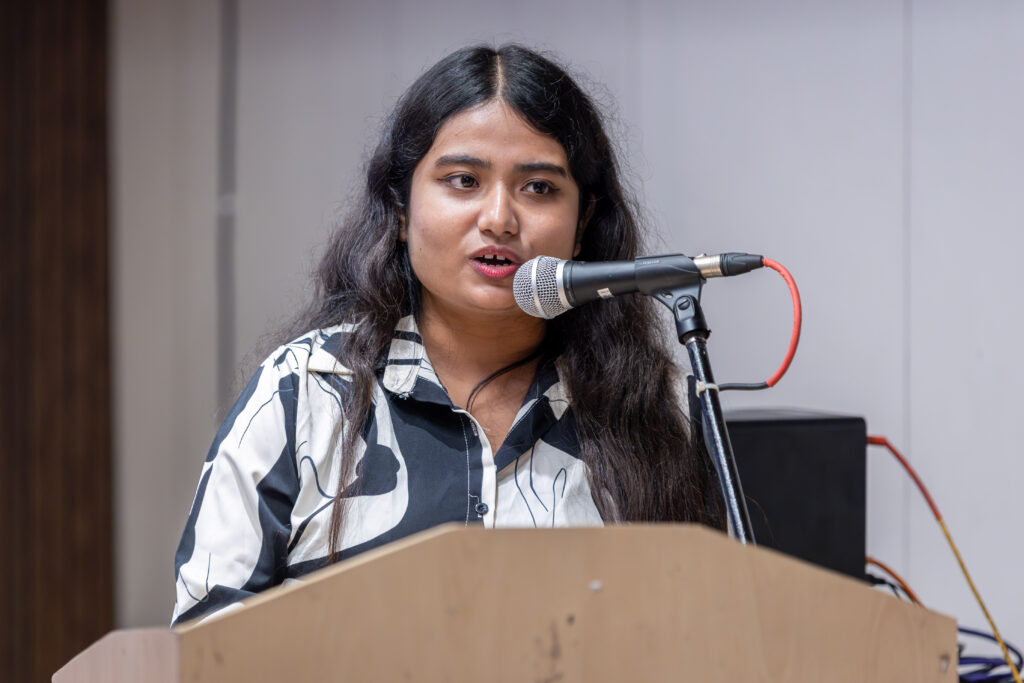
Sreshtha Basu Roy Chowdhury, one of the student debaters, spoke against the motion. “I would like to set the motion right. We are not debating on whether or not we require AI as a tool in our day-to-day lifestyle, we are debating upon whether its absence is going to change the way we look at the job sector today. What defines the complexity of a job and how has that changed in the recent years?…And what exactly is meant by having a job. My first point would be while routine tasks have become automated, that has increased the need for human skills and software skills to become a lot more developed. So while the proposition party might feed words into our mouth and make us believe that it, as the youngsters, we are trying to propose the idea of communicating through AI, it is basically the other way around. AI is communicating because of us.”
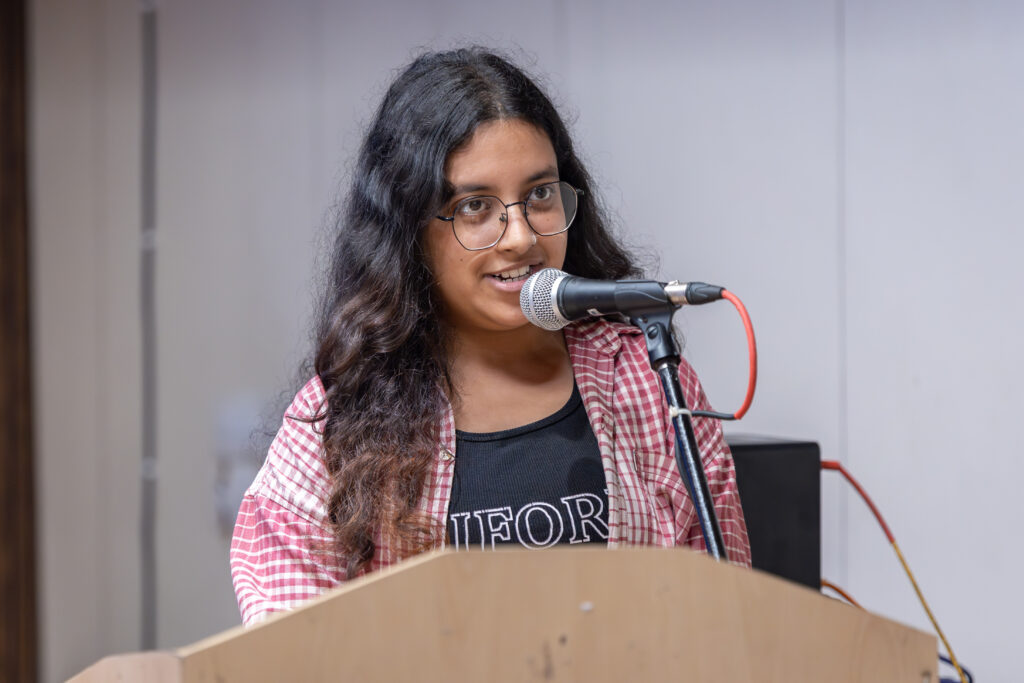
Angelina Goswami, another student debater, came onstage and spoke for the motion. “In this country especially, which is so rich in traditions and culture, natural talent, I don’t think can ever be replaced by an artificial intelligence or just technology. As much as natural talent is absolutely the most prized possession of the world, I think AI education and AI as just a search engine only enhances this present natural talent… The global economy is increasingly dependent on the advancing AI technologies. Let’s talk about marketing, finance, transportation, manufacturing. These are all integrating AI for automation and efficiency of the job roles that are present in today’s world… Our own university, having launched this new AI handle, is only advancing towards the betterment of the society and helping our students, saying from a very personal perspective, helping our students in reaching such a level of talent and knowledge, which probably no manual handle could provide us.”

Ms. Amrita Dutta, speaking against the motion, highlighted the ways AI affects the music industry. “I know a lot of people like me who view AI as a nuclear bomb. Because we as artists believe in individuality, practice and personal skill. We are a very open-minded community and through that discussion, through individual skill, we can create our own identity… Art takes a lot of discipline and years of dedication, which AI now handles in the matter of seconds. Where is our individuality vanishing off to?”
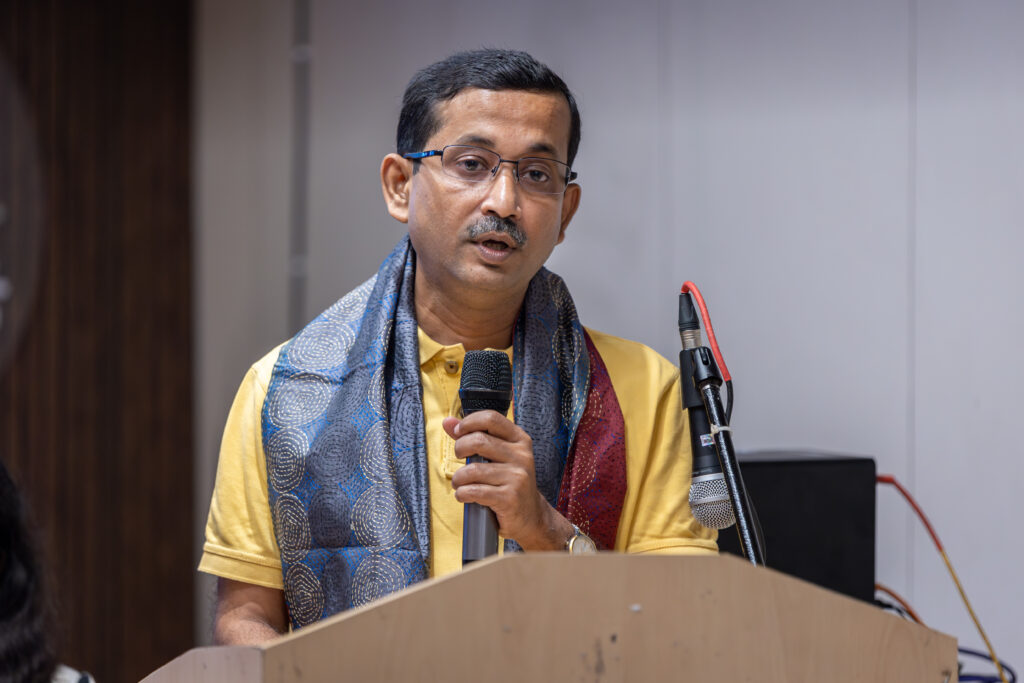
Mr. Kausik Halder spoke for the motion. “AI is artificial intelligence. Its knowledge is generated from the data and data is gold mine. So, use of knowledge of computation of data, handling of data is very essential. That is the notion. AI education means you must have knowledge, you must have capacity, you must have skill to deal with such kind of data. The knowledge of data computation and data power is extremely crucial for students in today’s date.”

Dr. Samiran Chattopadhyay spoke against the motion. “Computers 30 years back were not the same computers we know now. So therefore, it is just a play of words. Basically, what it means is, every day we make a new model which is also happening with AI… As far as AI solutions are concerned, two things are against it. One is energy. And the other one is explainability. Without these two terms we will only write poems using it, nothing more important.”
Student debater Arunangshu Halder spoke for the motion. “Our own university is launching a degree which will focus on artificial intelligence skills. Now, for that I think we would need teachers, we would need assistants, we would need professionals who would be able to teach this degree. The people who don’t have any knowledge in artificial intelligence are creating a vacancy right here. Teaching about AI would obviously require professors who are already literate in AI. So it is important for AI to be better integrated with us to further be able to work in industries which are centered on AI.”
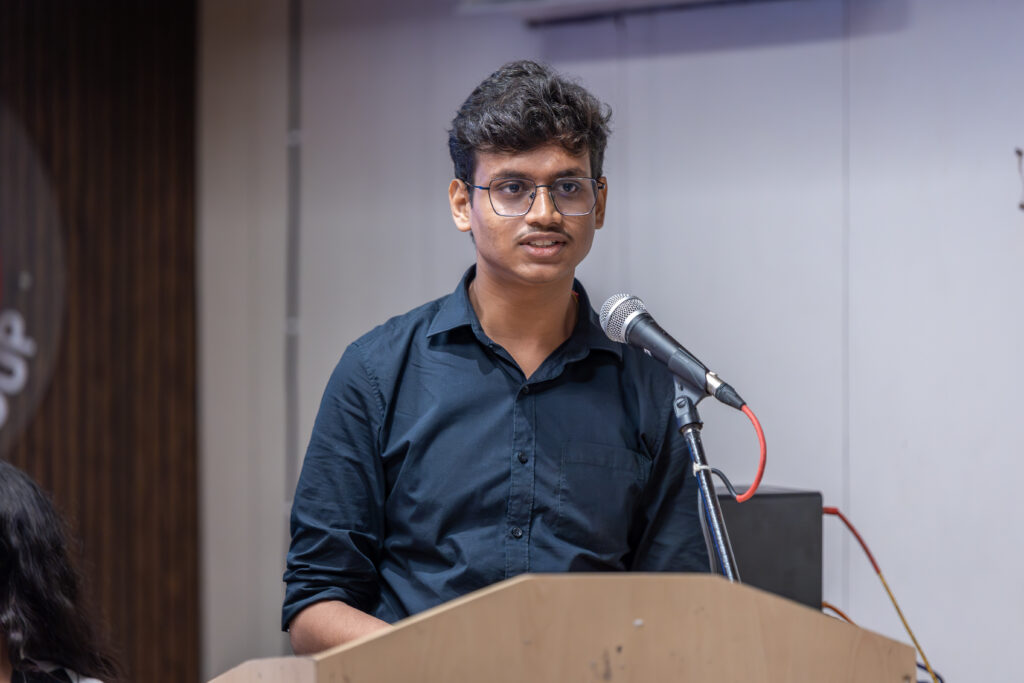
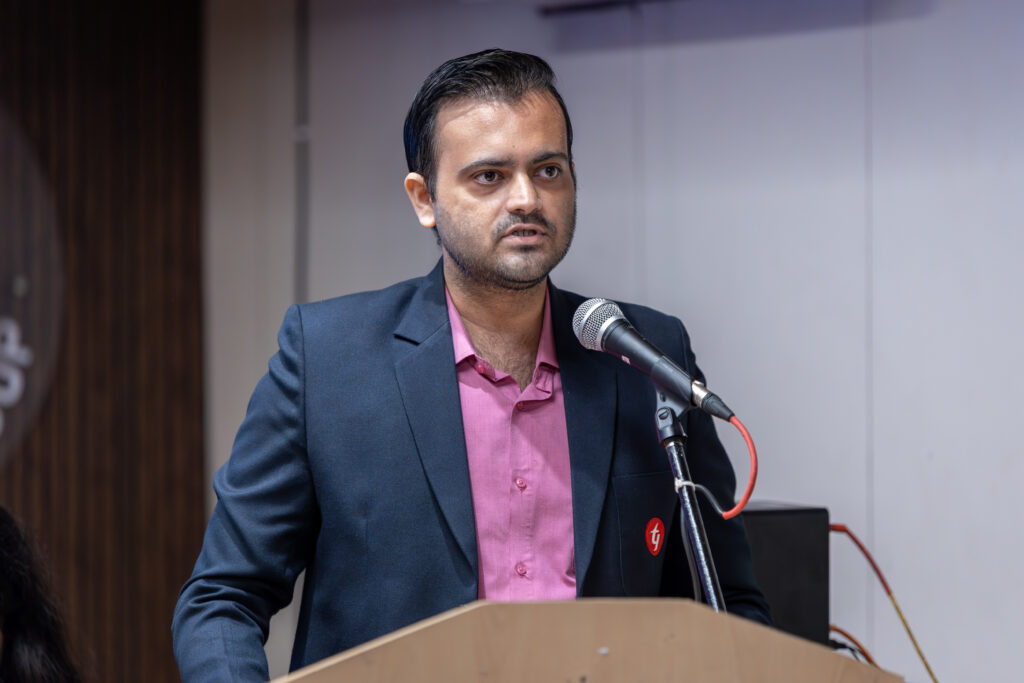
Lastly, student debater Aditya Chakraborty spoke against the motion, “Not all jobs require AI education. And what do I mean by that? What I’m trying to say is that AI is indeed advancing, but it’s essential to recognize that not every job will require AI knowledge. The Korn Ferry report itself acknowledges the fact that AI will affect many industries but it’s not going to dominate every aspect of the workforce. Fields like healthcare, social work, education and the arts will continue to rely heavily on human interaction, emotional intelligence and creativity – qualities that AI cannot easily replicate…The notion that no AI education equals no jobs is exaggerated. Many jobs will continue to thrive based on human qualities that AI cannot replicate and AI will only augment rather than replace. Moreover, soft skills and adaptability will remain crucial for career success regardless of technical AI education.”

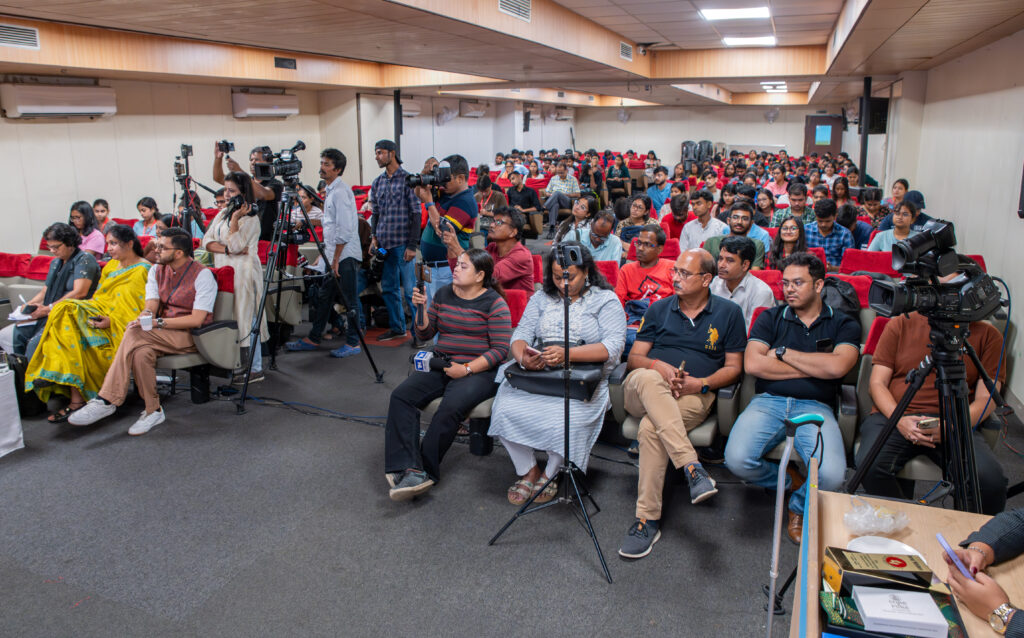

The debate on “No AI Education = No Jobs in the Future” sparked insightful discussions and diverse perspectives from experts and students alike. While AI is undoubtedly transforming the job market, the debate highlighted that AI education is not a one-size-fits-all solution. While AI skills are becoming increasingly valuable, human qualities such as creativity, emotional intelligence, and adaptability will continue to be essential for many jobs. As Techno India University launches its UGC Dual Degree Program, it’s clear that institutions are recognizing the importance of equipping students with both technical skills and soft skills to navigate the evolving job landscape. By fostering innovation and integrating AI education into their curriculum, institutions like Techno India Group are ensuring that their graduates are well-prepared to thrive in the future of work.


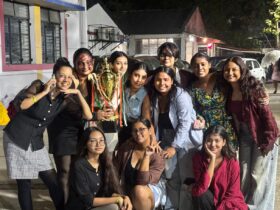
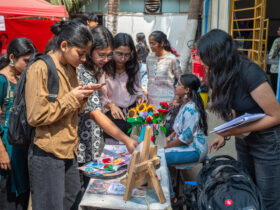
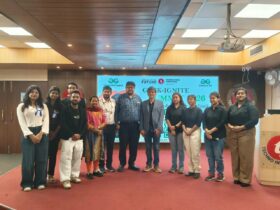
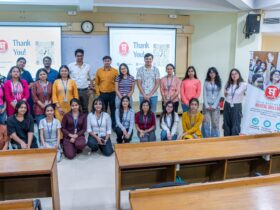

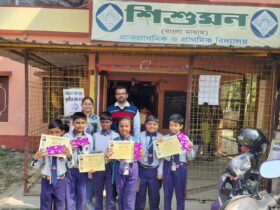
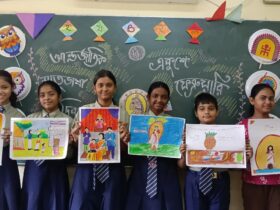
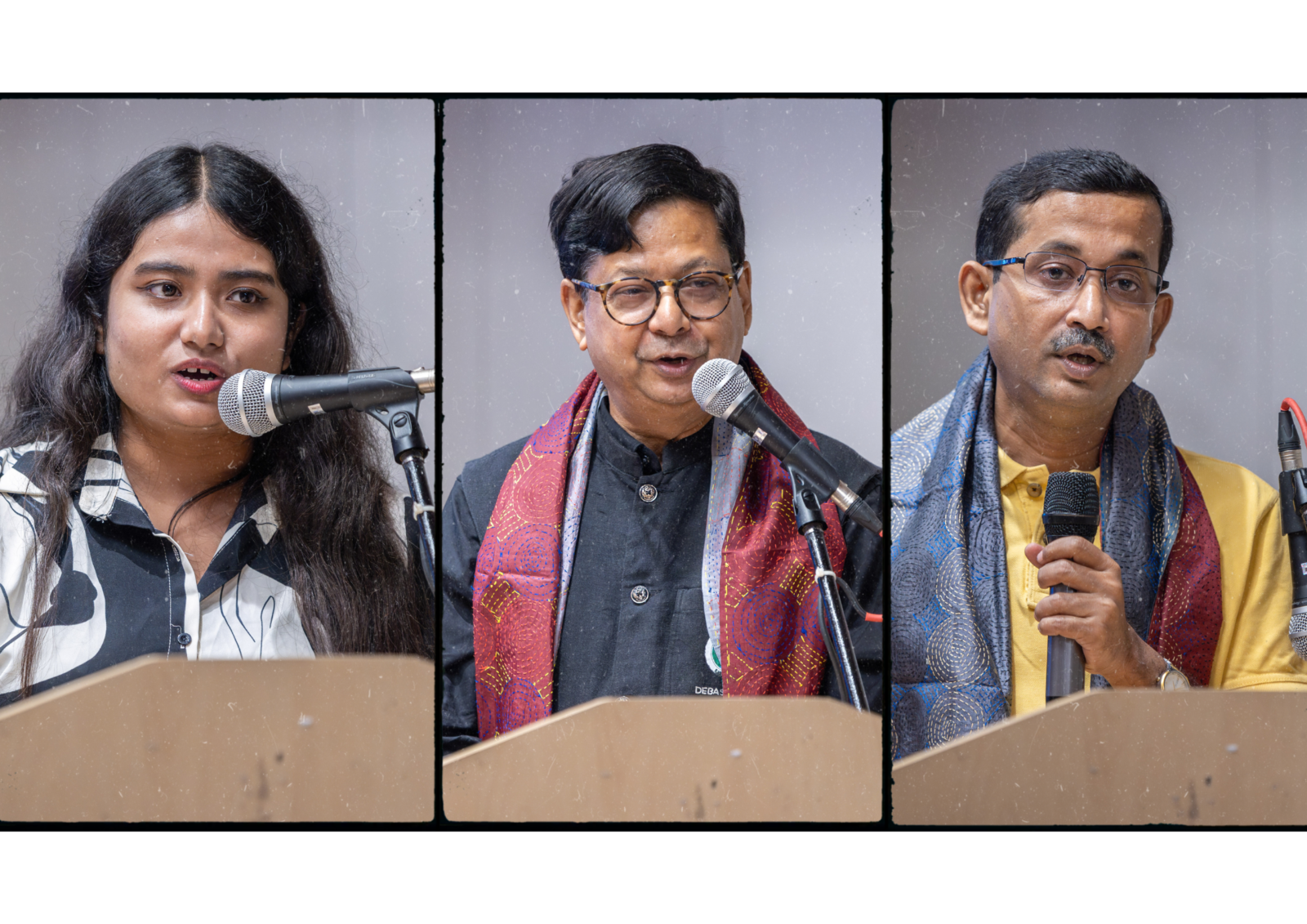
Leave a Reply